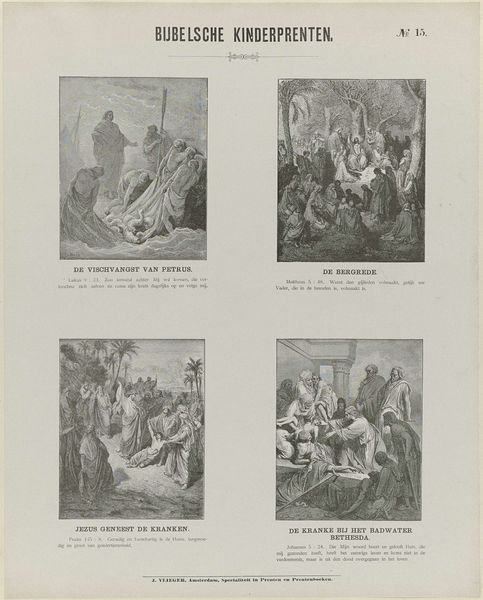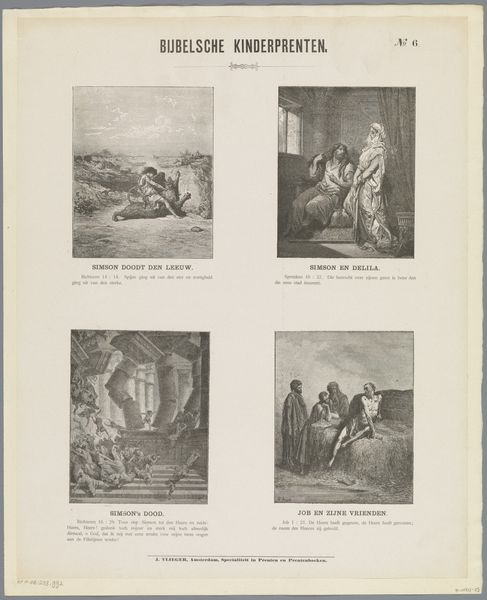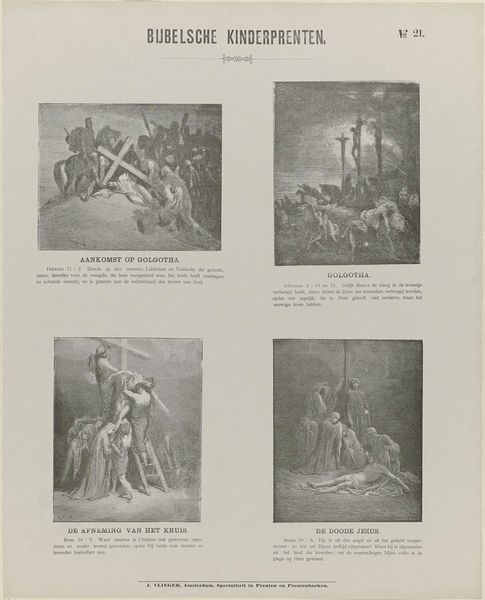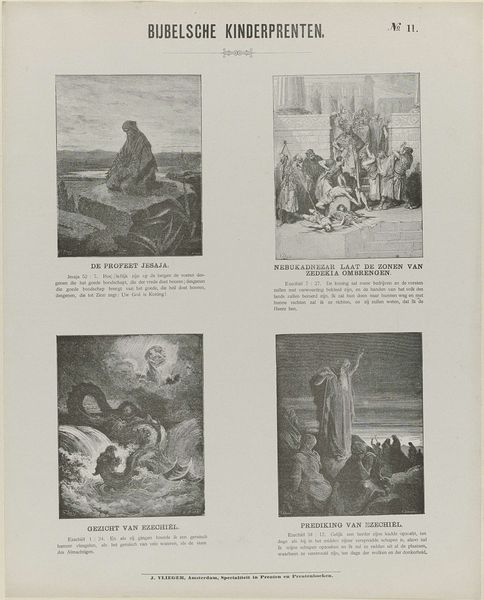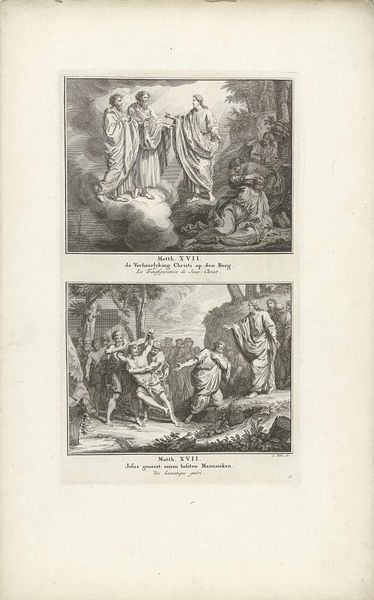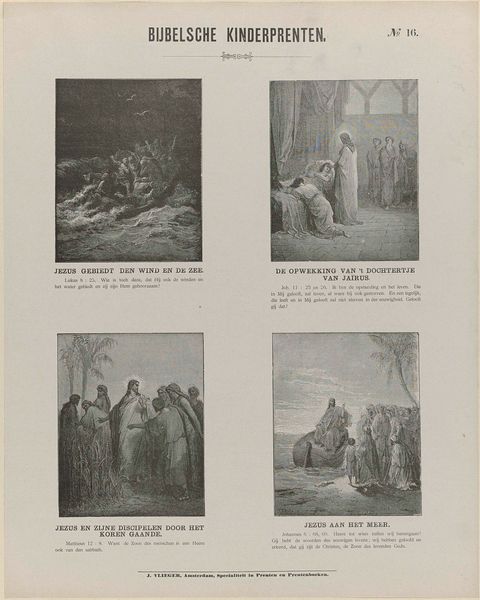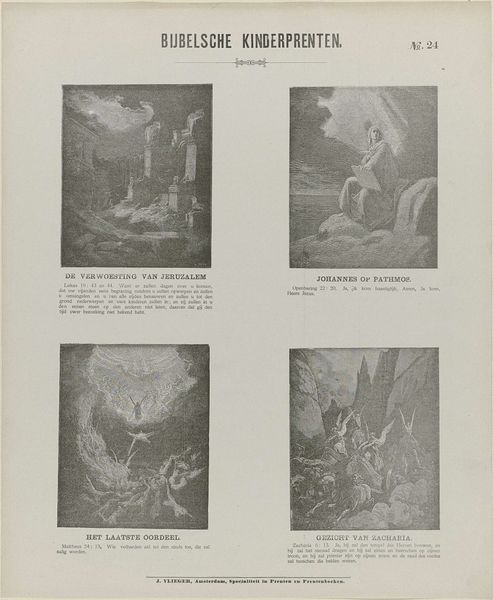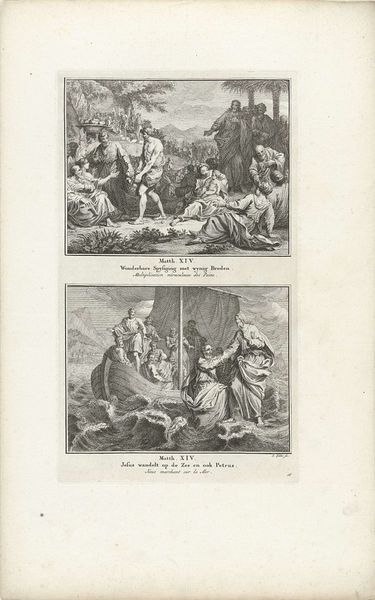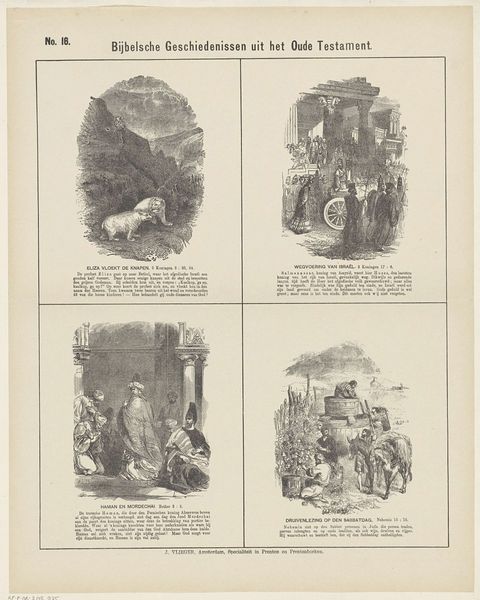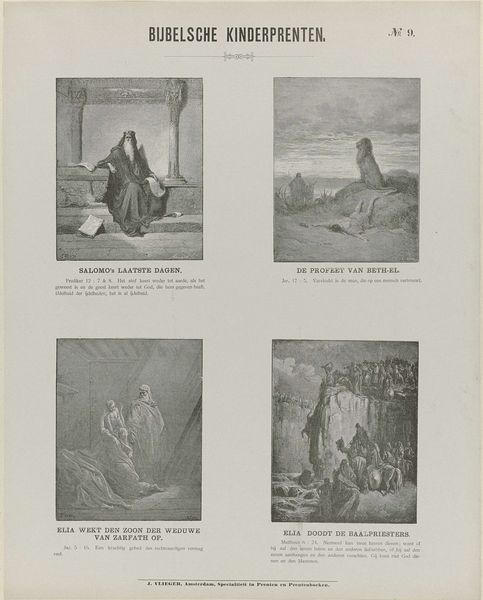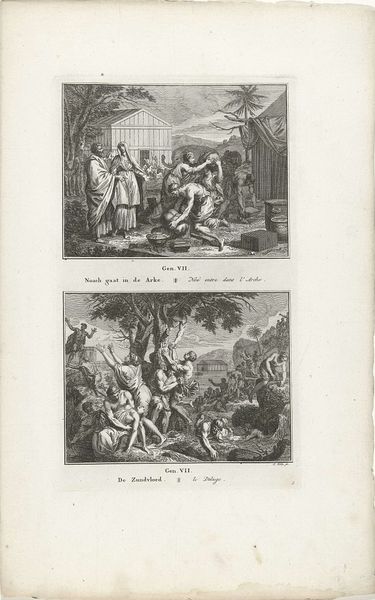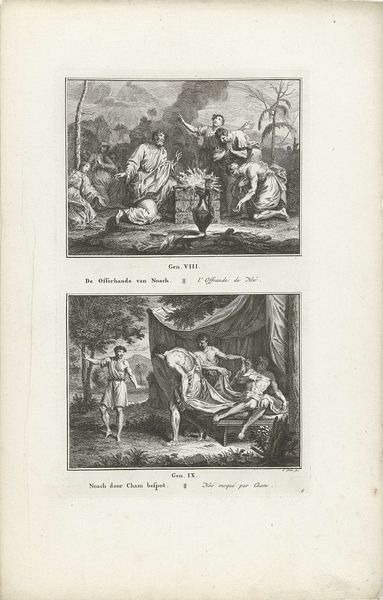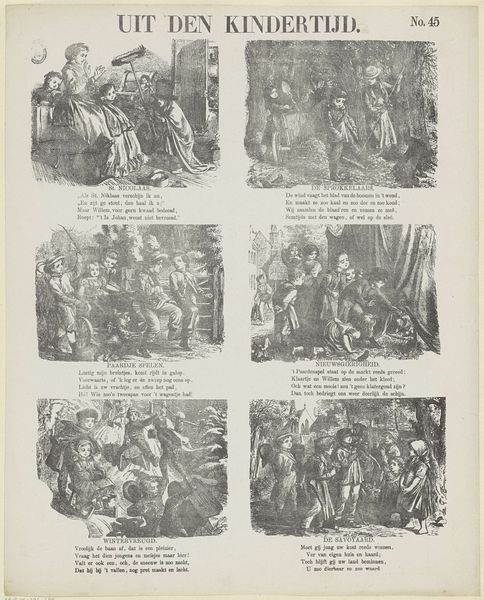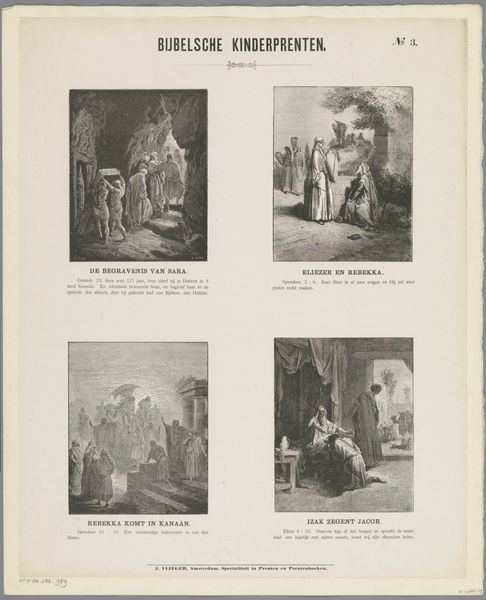
print, engraving
old engraving style
genre-painting
history-painting
academic-art
engraving
Dimensions: height 429 mm, width 345 mm
Copyright: Rijks Museum: Open Domain
Curator: Ah, yes, here we have "Bijbelsche Kinderprenten," or Biblical Children's Prints, dating from 1869 to 1908, likely an engraving given the detail. A rather sobering collection, isn't it? Editor: Sobering is an understatement! Looking at these four vignettes feels like stepping into a very dramatic, high-contrast dream. So much gray! It's very... well, intense. Curator: Intense in what way, would you say? Each image tells a specific, dramatic Biblical story. The top left depicts the death of Absalom, the son of David. Next to that is David mourning his son's death. Then we see Abishai saving David's life, and lastly, Solomon's judgement. These images aimed to impart morality lessons. Editor: Right. The style just amplifies the gravity. It is reminiscent of classical history paintings with a high level of precision, down to every fold of fabric. I suppose the point wasn't necessarily joyous religious ecstasy! More like…divinely sanctioned drama. The shading is impressive, I think. Curator: Engravings are so detailed due to the medium. It creates dramatic tonal range. They do appear in the tradition of academic art, prioritizing precise depictions and moral narratives from the bible. Editor: Absolutely. And think of the cultural weight attached to illustrating such scenes, the responsibility of depicting such... influential events with what was, I'm sure, understood as profound historical accuracy! The solemnity, I suppose, stems from that reverence. The social context is really key here, isn't it? How they wanted people to perceive morality. Curator: Exactly, to create powerful and didactic visuals accessible to a wide audience through print. The selection of stories and their depiction serves a particular moral and social agenda, presented within a distinct set of aesthetic conventions. Editor: Thinking about these prints circulating in homes, used for teaching... they weren't merely art; they were shaping the understanding of religious doctrine and moral behavior. It's like having morality coded right into the image itself. Makes me wonder what stories we engrave in images today. Curator: Indeed. Each tiny engraved line contributes to a grand narrative. In a strange way, so beautiful even though dramatic events shown in the prints!
Comments
No comments
Be the first to comment and join the conversation on the ultimate creative platform.
